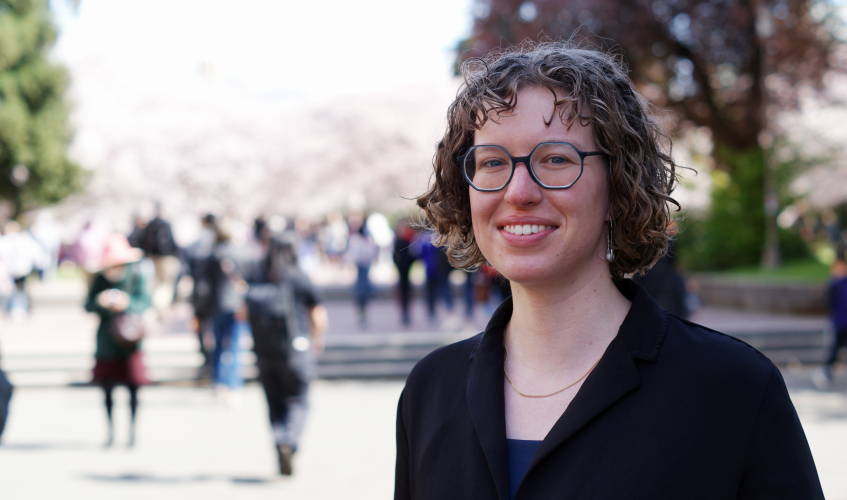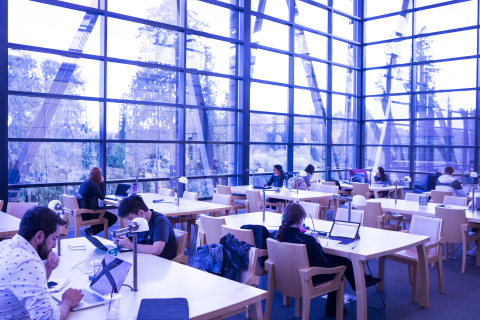Abel Charrow
April 17, 2023

“Students are humans and deserve a human’s right to privacy.”
That is the core belief that drives the research of Monika Blue Kwapisz, a second-year Ph.D. student in Industrial & Systems Engineering (ISE) at the University of Washington, whose work in data transparency and privacy in engineering technology has been awarded a prestigious fellowship by the National Science Foundation Graduate Research Fellowship Program (GRFP).
The GRFP, which aims to enhance the quality, vitality and diversity of the United States scientific and engineering workforce, recognizes outstanding graduate students with three years of financial support inclusive of an annual stipend of $37,000. This fellowship will allow Kwapisz to expand their investigation into the sobering lack of user privacy controls in many of the learning management systems (LMSs) most widely adopted by high schools and universities, such as Canvas. Kwapisz also intends to explore how privacy controls -or lack thereof- may affect the psychology and behavior of students dependent on these LMSs.
New technologies, new risks
“More online learning means more opportunities for privacy violations,” says Kwapisz. “Privacy is a big topic, but too few people are looking into how developments are affecting students.” When it comes to school-endorsed LMSs, the majority of students are either unaware their personal information and online behavior is being collected and scrutinized, or are unaware of their own rights to privacy. The consequences are compounded for minoritized students, who may not feel safe sharing identity information, such as their race, gender or religion, and whose educational experience may be affected as a result. “Exploring how technology impacts people differently is an imperative step towards progress,” says Kwapisz.
Through their work, Kwapisz strives to shine a light on these concerns, not only for those most at risk of having their rights violated, but for those responsible for designing and implementing these learning management systems in the future. LMSs have become essential tools in the modern learning environment. The solution is not to do away with them, but to create safer, more conscientious systems.
Having studied engineering leadership identity development as an undergraduate, Kwapisz was encouraged by ISE Assistant Professor Prashanth Rajivan, director of the Behavioral Research in Information and Computer Security (BRICS) Lab, to explore the field of privacy and security. “Industrial engineering encompasses everything from cutting-edge technological work to insightful human-centered research, which I love because I have always considered myself interdisciplinary between engineering and social sciences. The topic of my graduate studies will bring together the parts of me that love learning about technology and that are deeply invested in education and social matters.”
A legacy of learning
To fellow graduate students who may be hesitant to apply for GRFP or similar programs, Kwapisz offers their wholehearted encouragement. “Give it a shot. I did not expect to win it.” For Kwapisz, whose parents are both professors, this fellowship is a validation of their own journey in higher education. “It is difficult to admit how many times I have questioned my belonging in academia, but this inspires my goal of becoming a professor. Teaching would give me the opportunity to light a path for future academics no matter who they are. Engineering students and professors are governed by technical knowledge, but teaching is, at its core, about human connection.”
If you are a student interested in participating in this research through an interview, reach out at mkblue@uw.edu.
